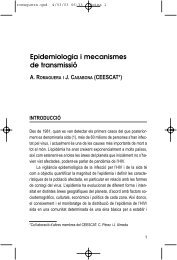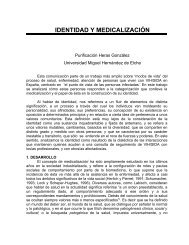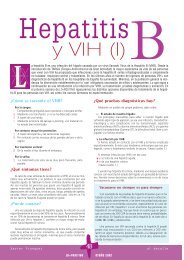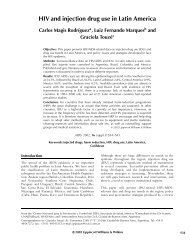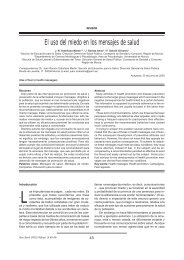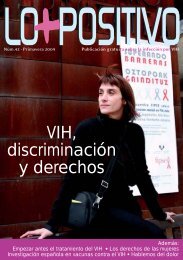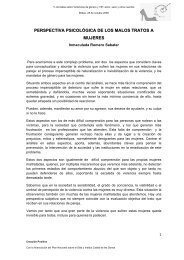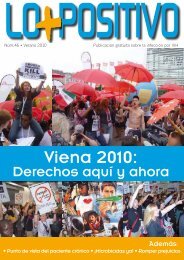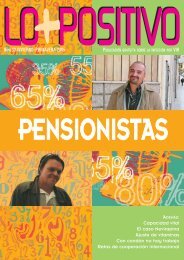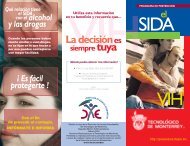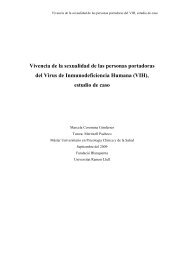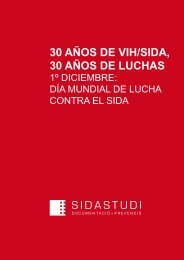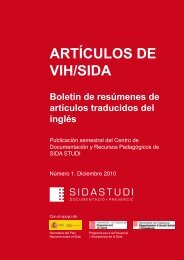Report - Sida Studi
Report - Sida Studi
Report - Sida Studi
Create successful ePaper yourself
Turn your PDF publications into a flip-book with our unique Google optimized e-Paper software.
Saturday 1 October 2005: Innovative Actions<br />
9 Workshop session: New Trends (continuation)<br />
9 Workshop session:<br />
New Trends (continuation)<br />
9.1 Organisation of the workshops<br />
Following the suggestion of Mr Juan Walter, the workshop<br />
sessions which began the previous morning were<br />
reconvened at this point. In some cases the facilitators<br />
remained the same and in others those who were to have<br />
made their presentations within the workshops which<br />
were planned for the previous afternoon filled this role<br />
(see below).<br />
9.2 Skills-building workshops<br />
9.21 Workshop 1: Learning to work with religious<br />
or faith-based communities and developing new<br />
tools to engage religious leaders<br />
Facilitators: Juan Walter, Maureen Louhenapessy and Ravi<br />
Chandran<br />
Rapporteur: Danica Staneková<br />
Participants: Virginija Ambrazeviciene, Leyla Hussein, Asa<br />
Cronberg, Katarína Jiresová, Rosa Freitas, Joseph Asynyka,<br />
Peace Kabushenga, James O’Connor, Michel Mbulu Pasu,<br />
Omar Hallouche, Julian Hows, Paul-Gérard Bele, Thabo<br />
Sephuma and Abbas Segujja<br />
This workshop resumed with a short reintroduction of<br />
the participants and a reprise by Mr Ravi Chandran of<br />
the substance of his presentation, with particular attention<br />
to his recommendations for improving working relationships<br />
between HIV/AIDS organisations and religious<br />
leaders. Further discussion centred on whether it is good<br />
to approach working with religious leaders less as a process<br />
of educating them, with its didactic and paternalistic<br />
overtones, and more as process of entering into dialogue<br />
and seeking to learn about their views and the rationale<br />
for these views. The latter could be a basis for mutual<br />
understanding and respect and, potentially, change.<br />
There was also discussion about the applicability of<br />
arguments, often pitched by religious organisation and<br />
churches, for abstinence and faithfulness as effective<br />
HIV/AIDS prevention strategies. It was agreed that while<br />
these remain a theological ideal it is important to help<br />
religious leaders see that they are not always lived up to.<br />
Participants further noted the importance of pointing<br />
out that there is no evidence that access to condoms leads<br />
to increased promiscuity and that sexual risk-taking is<br />
not dictated by access to contraception but by a range of<br />
attitudes, values and social circumstances.<br />
In addition to the action points identified in the previous<br />
session of this workshop, it was agreed that it is important<br />
to identify and seek to work with religious leaders<br />
on HIV/AIDS prevention aimed at migrants. In the first<br />
instance it is necessary to:<br />
• identify sympathetic religious leaders – those who<br />
acknowledge diversity, accept that human conduct does<br />
not always meet ideals enshrined in religious beliefs, and<br />
are open to communicating about the vulnerability of<br />
people to HIV/AIDS. This might include accessing networks<br />
like that run by Aegis which provides support for<br />
HIV+ religious leaders.<br />
Further recommendations included:<br />
• Improving communication between HIV/AIDS organisations<br />
and religious leaders;<br />
• Improving cooperation between HIV/AIDS organisations<br />
and religious leaders;<br />
• Improving networking between HIV/AIDS organisations<br />
and religious leaders.<br />
9.22 Workshop 2: Learning to talk about sex;<br />
dealing with diversity, gender and intercultural<br />
communication issues<br />
Facilitators: Michael Cruz and Hamid Ouali<br />
Rapporteur: Maria Pisani<br />
Participants: Amílcar Soares, Agita Seja, Isabel Looysen,<br />
Maeve Foreman, Moono Nyambe, Isabel Nunes, Olive<br />
Zuber, Nordine Frizi, Martina Zikmundova, Antje Sanogo,<br />
Fabrice Métayer, Pangiotis Damaskos and Isidro García<br />
Nieto<br />
21



